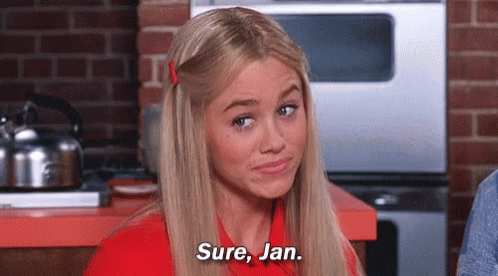Tonight: I’m going to talk with Amanda Carpenter and Mona Charen about the coming Christie and Pence announcements and where this whole clown show is headed.
But before we start: Sorry there was no Triad yesterday. I spent three hours writing myself into a dead end and couldn’t make the essay work. So I pulled the plug. One of my guiding precepts is that I will never (intentionally) waste your time.
I’ll try to do better today.
1. Josh Hawley’s Manhood
My buddy Carlos Lozada read Josh Hawley’s new book so you don’t have to:
[Hawley’s] new book, “Manhood: The Masculine Virtues America Needs,” draws on biblical influences — the stories of Adam, Abraham, David and Solomon in particular — to combat the malaise of American men, so addled by video games and pornography and troubled by depression and drug abuse that they cannot discern their calling. “They have no template,” Hawley worries, “no vision for what it is to be a man.”
Men are called to cultivate and protect and expand the Eden that is Earth, Hawley writes, to confront evil, embrace servanthood, privilege duty over pleasure, discipline their bodies and order their souls. They must “start families and build homes and leave legacies of character that will span generations.” The senator is unapologetic about finding solace in the past. “American men, it is time to wake up,” he writes in his final chapter. “It is time to become free men, as your fathers and grandfathers were.” . . .
But it is far from clear that our fathers and grandfathers had it all figured out. Lamentations on the condition of men have a long history in American cultural debates, dating back to well before the 43-year-old Hawley was born. In 1958, Esquire magazine featured an essay by Arthur Schlesinger Jr. called “The Crisis of American Masculinity,” which almost reads like it could have been published today. “What has happened to the American male?” Schlesinger asked. “For a long time, he seemed utterly confident in his manhood, sure of his masculine role in society.” However, by the mid-20th century, Schlesinger wrote, men had come to see their maleness “not as a fact but as a problem.”
The poet Robert Bly, in his best-selling 1990 book, “Iron John: A Book About Men,” traced the grief of modern man from the Industrial Revolution, which separated men from their families and from nature, to the Information Revolution, which left office-bound men too enervated to teach their children well. “So many roles that men have depended on for hundreds of years have dissolved or vanished,” Bly wrote. Writing a generation after Schlesinger and one before Reeves and Hawley, Bly concluded that adult men found themselves ashamed, and young boys found themselves confused. . . .
It is easy to raise an eyebrow at Hawley’s book . . . but there is much to take seriously in its pages. He calls for the subordination of the self to the needs of those whom we love. He argues for the dignity of all work, no matter whether it is denigrated as a “dead end” job. He recognizes fatherhood as a daily reminder of the ways we are flawed. And he urges young men to assume greater responsibility for their own lives (“Ditching porn is a good place to start,” Hawley writes) as a step toward glimpsing that missing vision of manhood. To dismiss or mock such views merely because they come from Josh Hawley is to let partisan commitments overwhelm intellectual ones.
Read the whole thing. Lozada is being as charitable as possible to Hawley, but the book winds up doing pretty much what you’d expect: Blaming the woke socialists.
“Much of today’s left seems to welcome men who are passive and tame, who will do as they are told and sit in their cubicles, eyes affixed to their screens,” Hawley writes. The left’s “woke religion” purports to supplant the God of the Bible, and demands that we “renounce manhood, womanhood, Christianity, and other supposed markers of ‘social power’ and submit to the corrective tutelage of the liberal elite.”1
There are some things worth considering on the question of “manhood.”
(1) Putting aside the language of “crisis,” it’s entirely possible that both men and women are facing serious, but different, challenges created by economic, technological, and social change. In fact, it’s more than possible—it’s likely.
Further, it’s likely that men and women are pretty much always facing serious, but different challenges because life is suffering and change is constant. Here is a universal truth: No matter who you are, it is hard to find your place in the world.
(2) To recognize that men (and women) face (separate and different) challenges is not to say that it is a crisis that can be “solved.”
Because the challenges we face today will be different from the challenges our children face 20 years from now.
(3) What we should do—all we can do—is try to understand clearly the nature of the current challenges and try to course-correct where possible, to make it marginally easier for people in their struggle to find their place in the world.
And you accomplish this through honesty and kindness.
2. You Are Who You Hate
There’s an inherent political tension in Hawley’s project, though.
Because who is really creating the porn ’n‘ gaming culture he decries?




